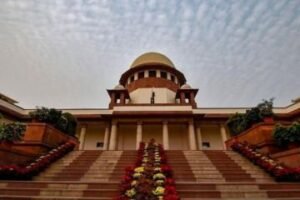Patents Act | Non-Consideration Of Grounds In Rejecting Pre-Grant Opposition Constitutes Violation Of Principles Of Natural Justice
Case: Best Agrolife Limited V. Deputy Controller Of Patents & Anr.
Coram: Justice Jyoti Singh
Case No.: W.P.(C)-IPD 11/2022
Court Observation: “As a matter of self-imposed restraint, the High Court could refrain from exercising the writ jurisdiction, where the aggrieved party has an alternative efficacious remedy. Alternate remedy would not, however, operate as a bar in three eventualities carried out by the Supreme Court. It is a matter of prudence and discretion as to whether the writ Court would entertain the writ petition in the given facts and circumstances…Thus, if the Petitioner is able to substantiate its pleas, there would be a violation of principles of natural justice and in those circumstances, the present writ petition would be maintainable.”
“A plain reading of the scheme of the Patents Act, 1970 shows that Section 25(1) provides a remedy for pre-grant opposition when a patent application is made and published. It needs no emphasis that if the Act provides a remedy, the Authority competent to take a decision must consider the representation in consonance with and by scrupulously applying the principles of natural justice, albeit at the stage of pre-grant opposition only a summary enquiry is envisaged. Reading of the impugned order leaves no scintilla of doubt that Respondent No. 1 has not even adverted to Section 3(d) and the opposition raised on the ground provided under the said provision albeit it would have been a different matter if the ground urged under the said provision was rejected on merits. Non-consideration of the ground per se, in my view constitutes violation of principles of natural justice.”
“Patents Act is a complete Code which provides a mechanism and a procedure for carrying out amendment of an application, specifications, etc., before the Deputy Controller of Patents under Sections 57 and 59 thereof. Admittedly, the procedure, as mandated under the Act, was not followed by Respondent No. 1 before permitting Respondent No. 2 to carry out the amendment. In fact, the amendment was allowed two days prior to the passing of the impugned order, without even notifying the Petitioner of the same, leave alone giving an opportunity to respond. Assuming that the amendment was trivial or insignificant in the perception of the Respondents, which is the case being set up at this stage, it may not have been so for the Petitioner and given an opportunity it may have been able to justify the opposition. It is pertinent to note that strangely and significantly the order impugned herein does not even mention that an amendment was made to the original claims and specifications by Respondent No. 2, which were allowed. Therefore, holistically read, the impugned order suffers from legal infirmities, as aforementioned, being a non-speaking and unreasoned order, besides there being violations of principles of natural justice.”
Previous Posts
Payment Of Gratuity Act: Teachers Come Within The Preview of Employee U/S 2(e): Kerala High Court
Freedom Of Speech & Expression Extends To Reporting Judicial Proceedings: Supreme Court Rejects ECI Prayer To Stop Media Reporting Of Oral Remarks Download Judgement
Keywords
Non-Consideration Of Grounds, Rejecting Non-Consideration Of Grounds




